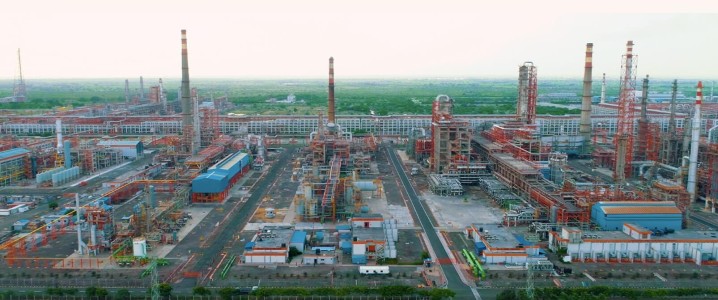
Private Indian refiner Nayara Energy is adapting to new challenges after being placed under European Union (EU) sanctions on July 20, as part of Brussels’ 18th sanctions package. The restrictions are linked to the Russian state-owned company Rosneft, which holds a 49% stake in Nayara. In response to the sanctions, Alessandro Dorides, the company’s CEO, resigned. He has been succeeded by Sergey Denisov, a Russian-born executive, marking a significant leadership change amid these developments.
The core of Nayara’s operations lies in the 400,000 b/d Vadinar refinery located in northwest India. This facility is the country’s second-largest and has historically focused on exports, while state-owned refiners prioritize domestic supply. Since Rosneft invested $13 billion in Nayara in 2017, Vadinar has predominantly processed crude oil from Russia. Now, this connection is central to the EU’s sanctions.
Despite the sanctions, the EU was never Nayara’s primary market. Within Europe, the United Kingdom had been the main destination for jet fuel from Vadinar. Currently, the UK has not imposed any restrictions on Nayara, allowing some trade to continue. Data from Kpler reveals that in 2023, 9 out of 19 Europe-bound tankers were sent to the UK, and in 2024, that figure remained at 4 out of 8. By 2025, shipments to Europe had decreased to about 5% of total output, with only three voyages recorded before sanctions took effect.
The recent sanctions have prompted Nayara to pivot its focus towards Asian markets, as indicated by trade developments in July, the first month under sanctions. Eight tankers loaded with refined products departed from Vadinar, with four heading to the UAE, one to Oman, two to Singapore, and one to Pakistan. The shipments to the UAE were split between Jebel Ali, which serves Dubai’s domestic market, and Fujairah, a significant transshipment hub that facilitates discreet rerouting to markets in East Africa.
The flexibility offered by ports like Sohar in Oman, which functions as a bunkering center, and the trading dynamics in Singapore, where price and availability are prioritized over origin, will likely benefit Nayara. Singapore’s expansive network of buyers, many of whom are less concerned with the EU’s political stance, provides a viable outlet for Nayara’s products despite the shift away from traditional markets.
Yet, the refinery cannot overlook the longer-term structural changes resulting from these sanctions. Although markets like Singapore and Fujairah can absorb some of its output, increasing freight and logistical costs may force Nayara to concentrate more on its domestic market. Recognizing this potential shift, Nayara has sought support from the Indian government, including the possibility of sales through state-owned entities.
Despite discussions of collaboration with Reliance Industries, the largest public company in India, Reliance operates the 1.24 million b/d Jamnagar refinery, which is three times larger than Vadinar. As a result, Reliance is more likely to capture displaced export demand rather than provide direct assistance to Nayara. The competitive landscape between these two major refiners, both located in Gujarat, further complicates any potential cooperation.
The domestic market now stands out as Nayara’s most stable and manageable avenue for future sales. With a network of over 6,500 retail stations and a commitment to expand by 400 more by 2025, Nayara is better positioned to absorb a larger share of its output. What began as an ambitious retail growth initiative may evolve into a necessary buffer against external pressures.
Should EU sanctions persist and alternative export hubs reach saturation, Nayara’s domestic network will likely become increasingly vital. This shift could allow the company to maintain profitability, even as its traditional export routes are disrupted by geopolitical factors.
However, the sustainability of this strategy relies heavily on securing a steady flow of feedstock and maintaining healthy cash flows. In fiscal year 2024-2025, Russian Urals crude accounted for an estimated 90% of Nayara’s refinery runs, equating to 366,000 b/d. Yet, since the sanctions were implemented, crude oil arrivals have decreased significantly, totaling just 3 million barrels for the month of July, all of which were Russian.
Despite the reduced import levels, several Rosneft-owned cargoes are still en route to Vadinar, suggesting the Russian firm intends to continue supplying the refinery as it navigates these new challenges.
The future of Nayara Energy will depend on its ability to adapt to both domestic market dynamics and the ongoing implications of international sanctions.






